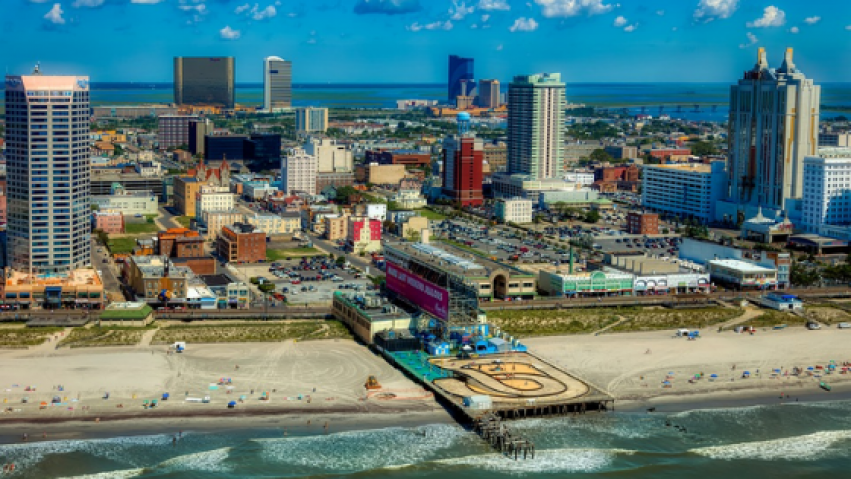In the fight against heroin and prescription painkillers, few states have battled as hard as New Jersey. Often regarded as New York’s younger sibling, New Jersey has frequently been in the limelight over the past decade thanks to a skyrocketing number of opioid addicts. Today, New Jersey laws to fight heroin addiction are hoping to break the cycle. Consider that upwards of 5,000 New Jersey residents have overdosed and died during the last decade. Consider that 741 people overdosed and died in 2013 alone. New Jersey officials say that number is likely to rise once 2014’s figures are released. So, what’s the plan to stop this scourge of heroin and painkillers?
New Jersey Laws to Fight Heroin Addiction
Well, New Jersey Governor Chris Christie has long been a vocal supporter of innovative approaches to treating substance abuse. He continued this pattern when, on February fifth, he signed into law three bills aimed at increasing heroin and painkiller treatment. The laws I’ll touch on below, are the first step in a revolutionary, statewide shift. New Jersey is poised to move from a state decimated by opioid addiction and overdose, to a state at the forefront of the medical and social treatment of addiction. State Senator Joseph Vitale, who first introduced these bills, had the following to say about New Jersey and Christie –
“It’s been years since this [opioid addiction and overdose] has been a crisis. The solutions and the ways to treat people suffering from it are going to take time to implement, but these are significant steps” (NJ.com)
What Do The New Laws Say?
The bills that Gov. Christie signed into law promise real change in the often fraught world of opioid addiction. But what do they say? What precisely are these new laws? Here’s a snapshot of the New Jersey laws to fight heroin addiction. The first law offers increased immunity to first responders who administer Narcan, a popular “anti-overdose” medication. These are people like police officers, paramedics, needle exchange program workers, and many others who frequently interact with heroin and painkiller addicts. Narcan has a pretty good track record in saving New Jersey residents’ lives. Since March 2014, when Narcan use first became popular, it’s reversed upwards of 800 overdoses. That’s 800 saved lives. Gov. Christie, in a statement, had the following to say about Narcan:
“Today, we are cementing in our laws those same protections for our first responders who are doing this incredible, life-saving work every day under our statewide Narcan program. By doing so, we will have an even greater ability to save lives, reverse the effects of an overdose, and prevent tragedies with this lifesaving treatment.”
Fighting Addiction through the Legal System
The second law will require treatment centers to submit regular performance reports to the Department of Human Services. This will help streamline the care offered at rehabs across the state and cut down on the use of non-evidence based practices. These are things like equine therapy, which, while undoubtedly helpful, doesn’t have a scientific basis. The third law requires state jails to offer addiction and mental health services to inmates. Inmates will now be offered treatment by “the agency with the most appropriate expertise and experience” (Bill S-2380). This offer increases mental health and substance abuse treatment to inmates, but it will also allow the Division of Mental Health and Addiction Services oversight in New Jersey’s jails. This is a wonderful step towards prisons offering real rehabilitation, rather than merely housing criminals. Michael Botticelli, the new White House Drug Czar, had the following to say about recent changes in how America is treating addiction.
“We have made important progress against the rise of prescription drug misuse and related deaths since we released our plan in 2011, but much more work lies ahead of us.”
The Future of N.J. Drug Policy
Speaking of the continued work Botticelli mentioned above, New Jersey currently has many more drug reform bills in the state legislator. State Senator Joseph Vitale didn’t only introduce the three bills Gov. Christie signed into law. He added a total of twenty-one bills this past fall. While a complete list of all twenty-one would be far too long for this article, find some below.
- S-2366: It would require general practitioners to inform patients of the dangers inherent to various prescription drugs (notably many opioids).
- S-2368: Would increase New Jersey state funding for addiction prevention by $5 million.
- S-1998 & A-3129: Require all physicians to register for the Prescription Monitoring Program. This allows law enforcement to identify addicts going to multiple doctors and doctors who are overprescribing opioids.
- S-2372 & A-1436: These would create a Statewide Opioid Law Enforcement Task Force. Their job would be to investigate and prosecute those involved in the distribution of opioids.
- S-324 & A-2266: These would found the Behavioral Health Insurance Claim Advocacy Program, which would offer assistance and advocacy with insurance claims for those seeking addiction or mental illness treatment.
- S-2377: This would require all colleges in New Jersey to offer recovery housing options.
Seeking Treatment
While signing laws is a great way to start fighting the heroin epidemic, it takes a village to make a change. From Florida, Lighthouse Recovery Institute remains committed to helping those struggling with addiction. So, if you or a loved one struggles with substance abuse issues, don’t hesitate to reach out. Contact us today and learn more about our treatment programs. Together, we can help you find the right path to recovery.









